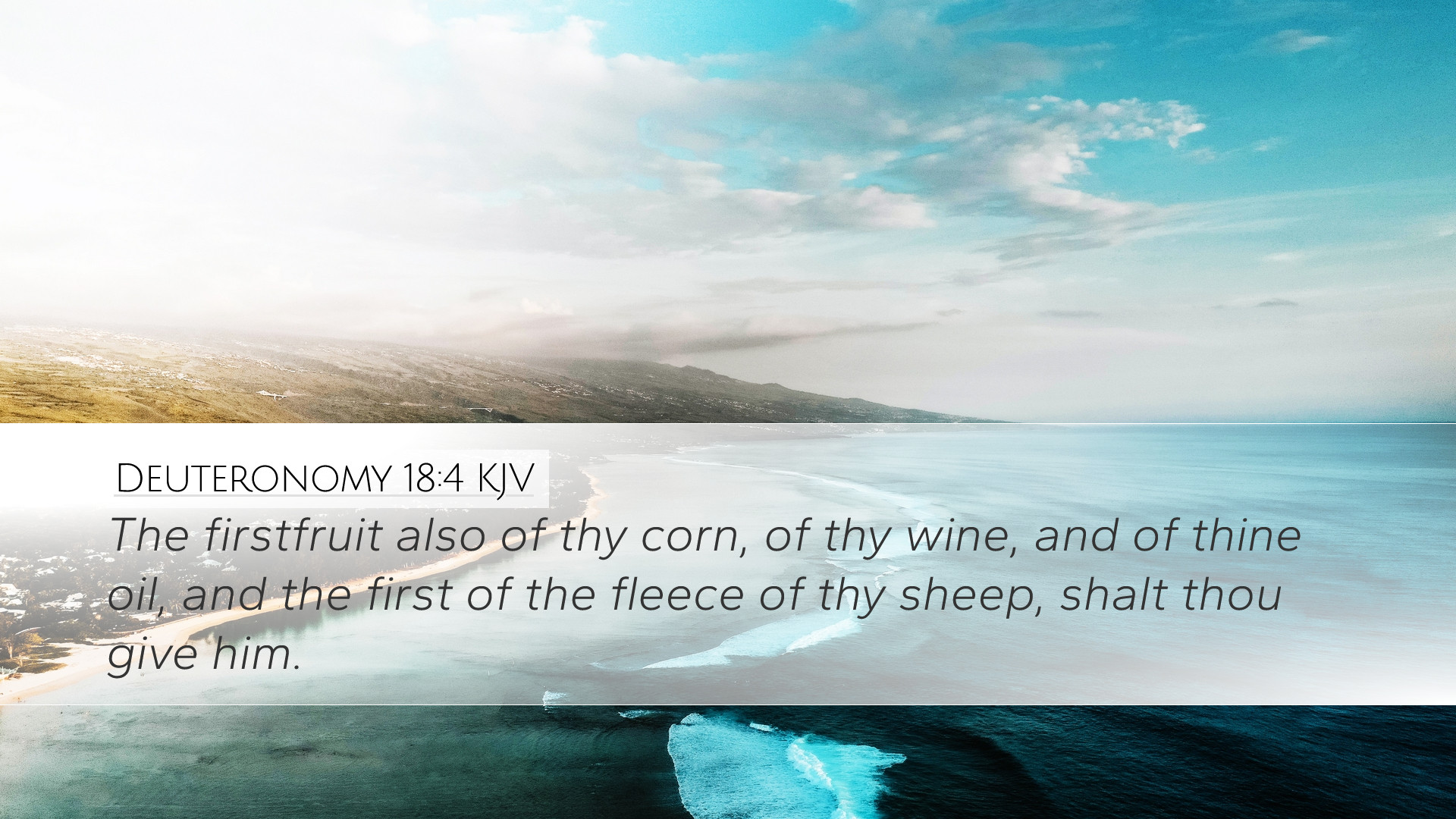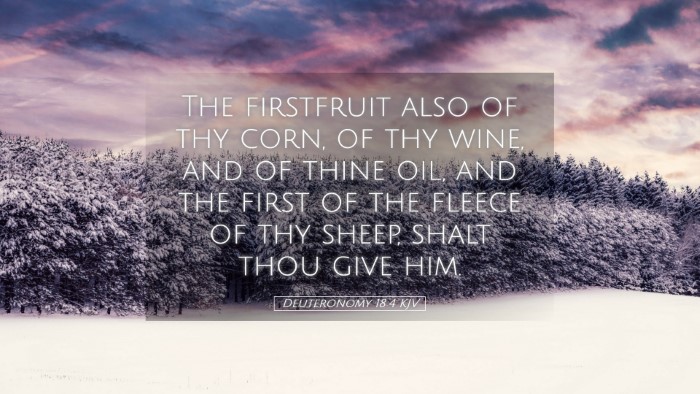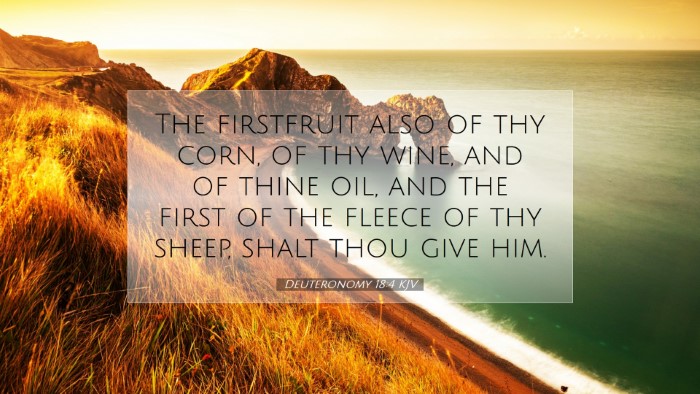Commentary on Deuteronomy 18:4
Verse: "The firstfruits of your grain and your new wine and your olive oil, and the first wool of your sheep, you shall give him."
Introduction
Deuteronomy 18:4 provides a unique insight into the Levitical allocations as God delineates the substance that is to be offered to the priests. This verse highlights the foundational concept of offering the first and best to God, symbolizing the dedication of one's life and resources to His service. The offerings cover various aspects of agrarian life, reflecting the agricultural law and the correlation of divine blessings with the act of giving.
Insights from Public Domain Commentaries
Matthew Henry
Matthew Henry emphasizes the importance of giving the firstfruits to the priests as an acknowledgment of God's sovereignty over the land and its produce. He notes that this act of giving is not merely an obligation but a means of expressing gratitude and respect for God's blessings. Henry points out how the priests serve as mediators between God and the people and thus should be sustained through these offerings.
He elaborates that such offerings illustrate the principle of putting God first in all that one does. Just as the firstfruits symbolize the covenant relationship, the practice reinforces the need for the Israelites to remain devoted to God and His service.
Albert Barnes
Albert Barnes draws attention to the varied offerings mentioned in the verse—grain, new wine, olive oil, and wool—each representing different aspects of the Israelites' agricultural life. He explains that these gifts were designed not just for the material support of the Levites but also acted as a reminder to the people of their dependence on God's provision.
Barnes highlights that the "firstfruits" implies giving the best of what one has, using the earliest ripe produce as a tangible expression of one's love and devotion to God. He further explains that neglecting these offerings would reflect an ingratitude for God’s sustenance and blessings.
Adam Clarke
Adam Clarke adds a rich theological perspective to the verse, noting that the giving of the firstfruits prescribes a principle that transcends the Levitical system—it speaks to the Christian understanding of stewardship and the prioritization of one's offerings to God. Clarke emphasizes that in offering these firstfruits, believers are to exhibit their trust in God's provision for the rest of the harvest.
He warns that this practice must be maintained not merely as a tradition but as a heartfelt expression of devotion. Clarke argues that failure to offer what belongs to God could lead to spiritual decline, as it disconnects the community from the vital acknowledgment of God's lordship over every aspect of life.
Theological Implications
The verse invites deeper reflection on the nature of giving within the context of community and service. It illustrates a pattern of establishing a relationship with God rooted in gratitude, dependency, and surrender. This acknowledgment emerges as foundational for those in pastoral roles, as it brings clarity to the role of offerings in sustaining both the clergy and the mission of the Church.
Practical Application
For pastors and church leaders, Deuteronomy 18:4 serves as a reminder to encourage their congregations not only to give but to give their best. It invites teaching on faithful stewardship and how the act of giving reflects discipleship and worship. Such teachings can lead to richer congregational life and deeper faith commitment.
- Encouraging members to set aside the first portion of their income as a practice of faith.
- Creating opportunities for congregational recognition of God's provision through collective testimonies of giving and receiving.
- Utilizing offerings not only for upkeep but for community outreach and benevolence, reflecting the heart of God for the needy.
Conclusion
Deuteronomy 18:4 captures the essence of a life centered on God—a life that responds to His grace through the act of giving. The call to offer the firstfruits serves not merely as an Old Testament ordinance but as a timeless principle encouraging faithfulness in our spiritual and material lives. As pastors, scholars, and believers engage with this text, they are invited into a sacred rhythm of giving that honors God and reflects the heart of true stewardship, ultimately leading to deeper faith and stronger communities.


